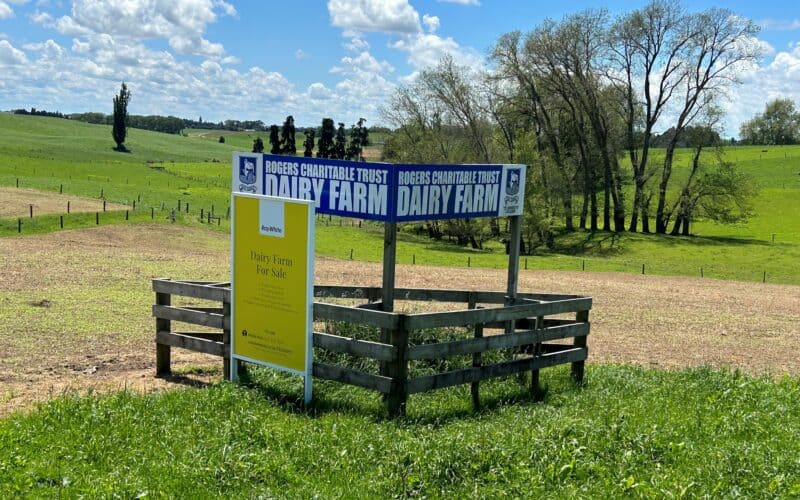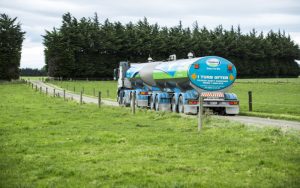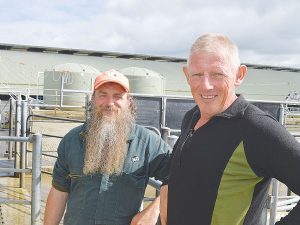
Federated Farmers weighs in on the future of two of the country’s long-standing high school farms facing tough decisions.
Change is on the way for two of the country’s long-standing high school farms, but the drivers of that change couldn’t be more different, says Federated Farmers meat and wool chair Toby Williams.
Rangiora High School in Canterbury is considering moving away from animal agriculture as they explore opportunities to make their farm more relevant in the 21st century.
Meanwhile, Te Awamutu College in the Waikato has made the difficult decision to sell their farm because increased compliance costs and falling commodity prices have eaten into their returns.
“This is very much a case of one going woke, and the other going broke through no fault of their own,” Williams says.
“Rangiora High School seems to think traditional Kiwi farming is no longer relevant and that hands-on experience with pastoral farming is of no value to its increasingly urban school roll.
“Te Awamutu College seems to have done everything right but has made the decision to sell the farm because of increasing cost, complexity, and compliance – which is something most people will have a lot of sympathy for.
“This really highlights the societal, financial, and regulatory pressures on farmers right across the country. Things are really tight and it’s getting harder to turn a profit.”
Rangiora High School principal Bruce Kearney told RNZ in October the school needed to consider what was sustainable and added value to the school, which meant it was weighing up the future of animals.
“The world is shifting to be more sustainable and shifting away from meat, so we need to prepare our students for a changing world,” Kearney said.
Board of Trustees chairperson Simon Green was quoted: ‘’The board is excited about moving away from a more traditional farm to an outdoor lab or outdoor classroom.’’
In response, Federated Farmers North Canterbury provincial president Karl Dean has written to the school’s Board of Trustees, calling strongly for a rethink.
“The unfortunate implications in the story were that traditional farming is not relevant in the 21st century, farming isn’t sustainable or ethical, the world is shifting away from eating meat, and the farm isn’t of value to your increasingly urban school roll.
“While we respect the school’s right to do as they please with their own farm, we strongly disagree with those implications and would urge them to reconsider or correct their statements.
“Federated Farmers sincerely hope these are not views held by the school’s leadership and that their position has simply been mischaracterised in the RNZ story.”
Although many students might not go on to become farmers, they’ll at least have the opportunity to experience and learn about New Zealand’s most significant sector, Dean said.
“An increasingly urban roll is not a good reason to shift away from having a livestock farming operation – it’s the very reason it’s so important for the school to keep it.
“It’s urban kids, not the ones who already live on farms, who get the most out of having the ability to learn about animal care and food production at school.”
Dean has invited the Board to meet with Federated Farmers to discuss their concerns and better understand the school’s position.
Further up the country, Te Awamutu College’s farm is being sold for several reasons, but a big one is that increasing farm costs have steadily eaten into returns.
Bequeathed to the college in 1962 by the late Dr Lindsay Rogers, the farm has given students practical farming experience, and its returns used to provide generous financial contributions to the school.
That funding has helped the college do some amazing things, like redevelop its Horticulture Compound, buy hall chairs and a school van, and make its school uniforms available at cost price.
As reported by the Waikato Herald in October, The Rogers Charitable Trust (RCT) has made the difficult decision to put the 57.5-hectare working dairy farm on the market, on the advice of experts.
RCT chair Wade Bell told the Waikato Herald that the future cash investment from the farm sale was the best way to keep supporting Te Awamutu College and its students.
“Despite my passion for dairying, the rising cost of compliance and associated risks to the college are becoming disproportionate to the returns generated,” Bell said.
RCT had been considering selling the farm for some time as they work to deliver on the intent of the trust and serve the school community.
Trustee Jock Ellis said running the farm was becoming complicated and the returns weren’t reflected in the value of the property and buildings.
Toby Williams says higher farm input costs and lower payouts have made life challenging enough for farmers, but having to comply with a barrage of regulations and rules is something that can, and must, be changed quickly.
“We really feel for Rogers Charitable Trust and Te Awamutu College, and we completely understand why they’ve made the tough decision to sell. They’ve done the right thing by acting on the advice of experts.
“Federated Farmers is calling on the new Government to move fast to make changes to the unworkable rules and regulations that have done little more than add cost and complexity to Kiwi farmers.”

























